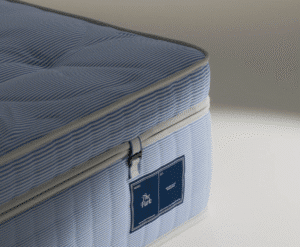What You Absolutely Need to Know About Sleeping Late on Weekends
The Surprising Benefit of Sleeping Late on Weekends
In today’s fast-paced world, the habit of sleeping late on weekends resonates with many of us. While it might seem indulgent, research reveals an astonishing benefit: sleeping in during weekends may significantly lower your risk of heart disease. In light of overwhelming data, understanding the implications of this common practice becomes crucial.
Recent studies indicate that catching up on sleep can reduce heart disease risk by nearly 20%. For individuals who face the consequences of weekday sleep deprivation, this weekend ritual offers a pathway to reclaim lost rest, improving overall heart health.
Unpacking the Benefits of Weekend Sleep
Compensatory Sleep: A Heart Saver
Weekday sleep deprivation—defined as getting less than the recommended seven hours—can be detrimental to your health. During the workweek, our bodies miss critical recovery time necessary for optimal function. By sleeping in on weekends, you can replenish this deficit, supporting your heart and enhancing cardiovascular health. A comprehensive study involving over 90,000 participants highlighted that individuals who catch up on sleep exhibit lower chances of significant cardiovascular events, such as ischemic heart disease and stroke.
Effects on Mental Well-Being
It’s not just heart health that benefits from weekend sleep; your mental well-being is also positively impacted. Insufficient sleep during weekdays can lead to irritability and mood swings, eventually contributing to mental health disorders like depression. Allowing yourself to rest and rejuvenate on weekends enhances emotional resilience and helps mitigate long-term mental health issues.
Immunity and Stress Hormones
Your immune system relies heavily on quality sleep. During restful hours, your body produces cytokines—proteins that play a crucial role in combating infections and inflammation. Chronic sleep deprivation can weaken your immune response, making you more vulnerable to illnesses. Additionally, inadequate sleep raises stress hormones like cortisol and adrenaline, which can lead to high blood pressure and increased heart strain. By indulging in extra rest on weekends, you not only improve immune function but also regulate these harmful hormones, promoting better heart health.
Strategies to Maximize Weekend Sleep Benefits
If you’re keen on making the most out of your weekend sleep, consider these practical strategies:
Create a Sleep-Conducive Environment
Transform your bedroom into a restful sanctuary. Ensure it’s cool, dark, and quiet—ideal conditions for quality sleep. Using blackout curtains, earplugs, or a white noise machine can significantly enhance your sleep environment. Investing in a comfortable mattress and supportive pillows is equally essential; a pleasant atmosphere can drastically elevate your sleep quality.
Mind Your Caffeine and Alcohol Intake
Caffeine and alcohol can interfere with your ability to fall asleep later, so it’s wise to limit your consumption, particularly during the latter part of the day. Caffeine can linger for hours, disrupting your restful intentions, while alcohol, though initially sedating, often disrupts sleep cycles. Reducing intake close to bedtime can enhance your sleeping experience.
Embrace Relaxation Techniques
Incorporating relaxation strategies into your nightly routine signals to your body that it’s time to unwind. Techniques like deep breathing, meditation, or gentle stretching can calm your mind and prepare you for a restful night. Consider reading a book or listening to soothing music as part of your ritual to enhance your sleep readiness.
Frequently Asked Questions about Sleeping Late on Weekends
Is it good to sleep late on weekends?
Certainly! Sleeping late can be beneficial, particularly if you’re attempting to compensate for lost sleep during the week. This compensatory sleep relates to a lower risk of heart disease. However, remember that it’s not a long-term fix; a consistent sleep routine throughout the week is essential for health.
Can sleeping in on weekends help you catch up on sleep?
Yes, sleeping in allows you to recover from sleep debt—improving your overall health and reducing stress. However, it’s crucial to remember that weekend sleep should not replace regular, high-quality sleep every night.
Is sleeping excessively on weekends harmful?
While occasional long sleep isn’t inherently bad, it may signal insufficient rest during the weekdays. Regular oversleeping can be linked to health issues, so aim to cultivate a balanced sleep schedule of 7-9 hours nightly for optimal well-being.
Conclusion
In summary, while sleeping late on weekends can provide surprising benefits—such as reducing stress hormones and lowering heart disease risk—it is not a long-term remedy for health issues. Establishing a consistent sleep schedule throughout the week remains paramount for maintaining overall wellness.
Prioritize a regular sleep routine, and remember that investing in sleep can yield dividends for your heart and mental health. By fostering better sleep habits, you can significantly enhance your quality of life. For more advice on achieving a restful sleeping environment and choosing the right bedding, continue exploring resources to support your sleep journey.


















